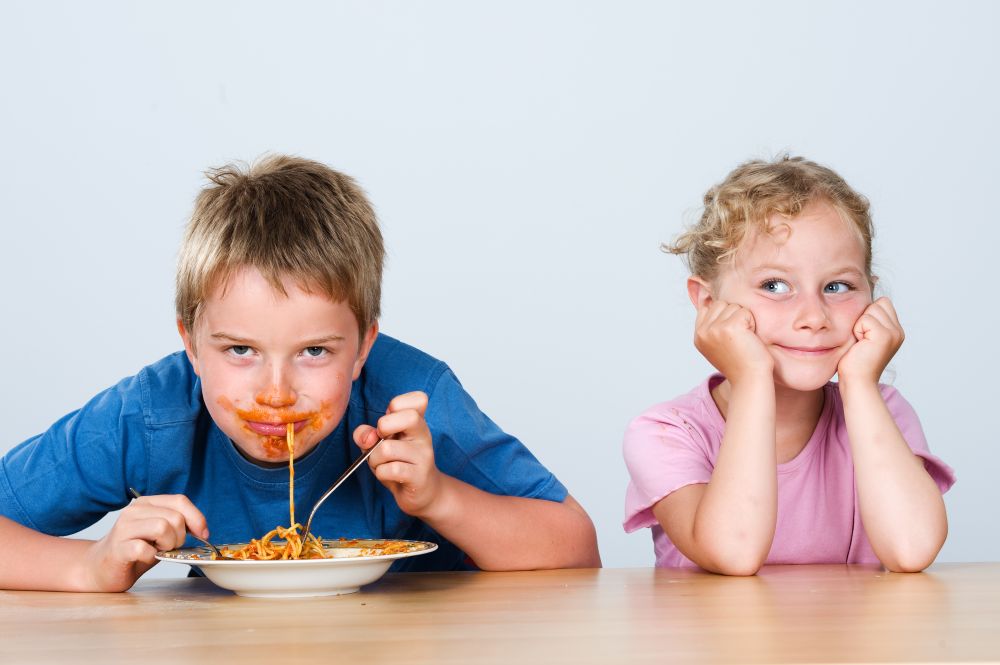
Growing Up Fast
As cute as babies may be in all their messy glory, they soon enough leave the age of red-faced yelling to enter the age of purple-faced yelling. It’s entirely natural to begin life as a little savage, but parents presumably wish for their children to learn to get along with other people at a level that rises above “me want now.” Some children learn faster than others, but all children must be taught one way or the other.
Please and Thank You
The habits of good manners are no more than the simple social lubrication techniques that ease individual members of society past each other’s personal quirks and desires. One of the earliest and most important habits is recognizing other people as individuals in their own right by using as appropriate the words “please” and “thank you.”
“Mommy, may I please have a cookie?”
“Thank you, Daddy! I love the teddy bear!”
Sorry Is as Sorry Does
The idea of expressing regret for the effect of one’s actions on another human being carries further the concept of other people as individuals with their own needs and desires and feelings. It is with the word “sorry” that children begin to learn the vital skill of polite hypocrisy in addition to the basic way to express genuine regret.
“I’m sorry I made you cry, Mommy.”
“I’m sorry, Brad, I didn’t mean to break your toy.”
Letting Other People Speak
Interrupting is a common bad habit that must be addressed quickly before it settles into a muddy pool of persistent disrespect.
“Dear, let Mommy finish what she’s saying. You’ll have your turn soon.”
Sugar and Spice and Everything Nice
Recognizing the need to be nice even when a person may feel like petulantly flinging snips and snails carries basic manners more fully into the realm of the stern adult world that lies ahead. Habitually treating other people as worthy of attention and respect is a critical skill that will color every aspect of a growing child’s life. Gender roles and behavioral expectations may vary from culture to culture, but the essence of polite treatment remains much the same for all.
“Can I help you water the plants, Mommy?”
“I brought in the chairs, Daddy.”
Leading the Way Personally
Children tend to be very perceptive and quick to learn from other people’s behavior. The best way to teach children how to behave well is to persistently exhibit good manners. Avoiding rank hypocrisy also greatly aids future parent-child relationships when the teenager years eventually arrive like a herd of yowling cats.
